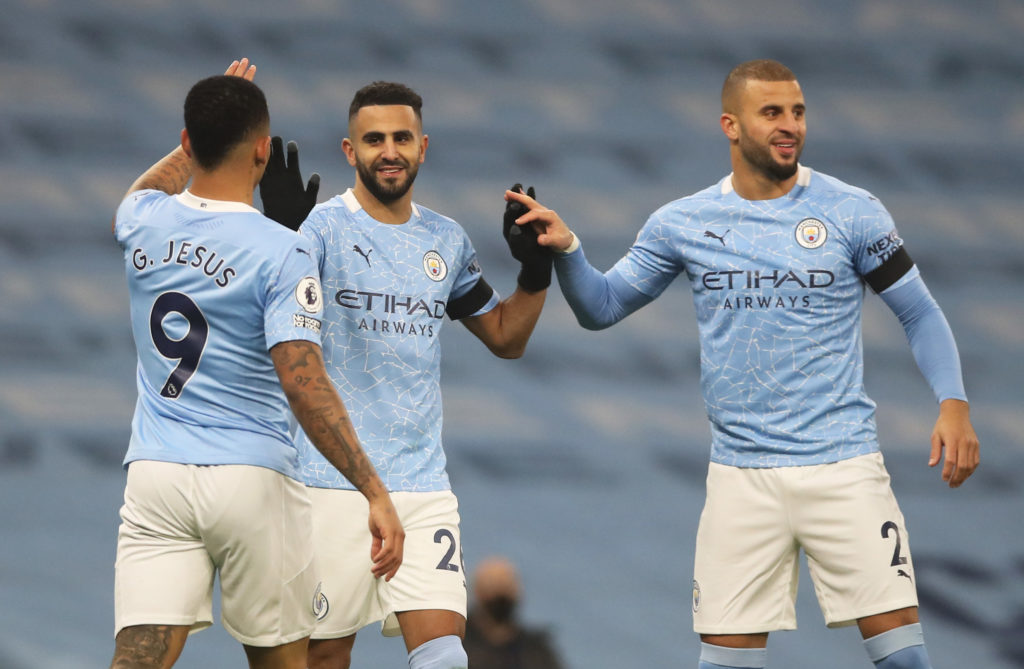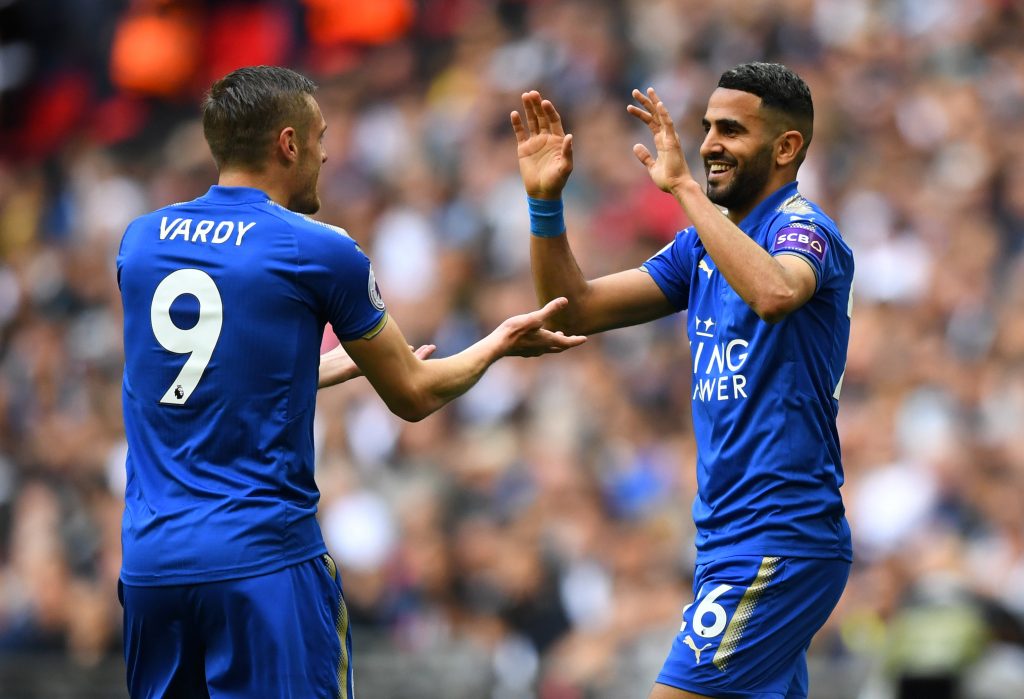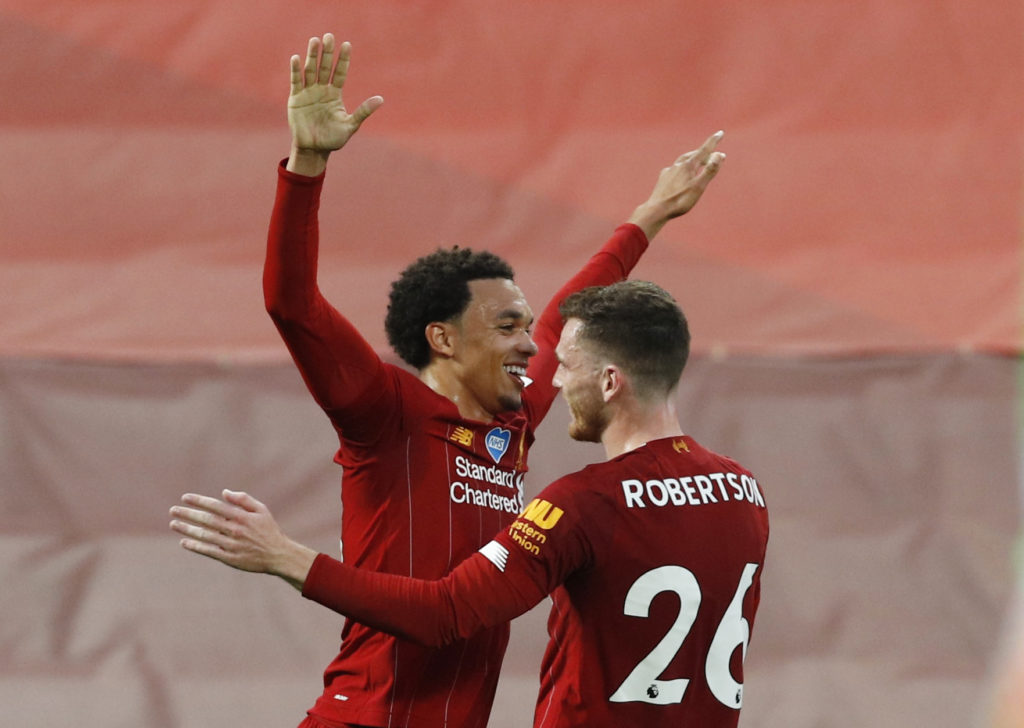The 2014/15 FPL champion, Simon March, asks if owning three players from the same Premier League club is advisable.
Fantasy Premier League has seen plenty of iconic duos: Carroll and Barton, Drogba and Lampard, Vardy and Mahrez, the list goes on. These are players who, while playing in the same team, both managed to score substantial points and frequently combined to score those points by assisting each other’s goals. If you had both in your FPL team at their peak, chances are you were doing well. Everyone loves a good double-up.
But what about triple-ups? They’re popular, too, but is it really a good idea to select three players from the same team? That’s the question I’ll be discussing this week.
Among the few firm rules that I rigidly observe in FPL is this: ‘Never triple up on a team who are likely to finish mid-table or below’. I learned this lesson in the 2015/16 season when my title defence was upended early on by my now-curious decision to Wildcard in three Swansea players (though, in my defence, this was a popular move at the time) just before they went from surprise early-season title candidates to winning just two games in their next 17. In my opinion, mid-to-lower table teams will rarely, if ever, sustain the form required to justify owning three (non-bench fodder) players or, indeed, they would not be mid-to-lower table teams.
While I’m unlikely to be talked out of this position personally, the question of whether tripling-up on any team is a good idea is more controversial.

On one hand, you have the philosophy that, if a team tends to score more goals than anybody else, and/or keeps more clean sheets, as per Liverpool or Manchester City in the past few seasons, it’s a good idea to have as many players from that team as possible. There is no doubt that, at times, this is a good move and, those who do time it correctly will no doubt profit as a result. Where such a team has a Double Gameweek, there’s even more reason to believe in the potential of a triple-up.
There are, however, a few problems associated with tripling up with players from the top teams. Firstly, it tends to be expensive. Man City may, for example, score more goals than most teams this season and they might also keep more clean sheets, but to triple up on them could cost 25-30%+ of your overall budget. At that point, the question is no longer just: ‘Will they score me enough points?’ It becomes: ‘Will the rest of my team be good enough to compensate if they don’t?’ There’s usually a good chance that a savvy FPL manager can find similar returns for less if they shop around.
The big exception to all of this is when a team who were expected to be mid-to-lower table end up performing really well throughout the whole season. The most obvious example of this phenomenon is 2015/16 title-winners Leicester from which you could purchase three of the highest-scoring players in the game that season for roughly the price of a McDonald’s Happy Meal. Of course, such teams are most notable by their rarity.

Why else could tripling up be ill-advised? One suggestion lies in the mechanics of how scoring occurs in football generally. A player scoring is always the product of their own ability to score, their team’s ability to provide them with opportunities to score and their opposition’s ability (or inability) to stop them from scoring. However, there is also a temporal aspect to this equation. A match only has 90 minutes (or sometimes 100 minutes if you’re a certain Manchester-based club…) and, thus, your triple-ups are sharing that time between them. They cannot all score points at once even if two combine for a goal and, therefore, their ability to score is naturally limited. This might not be a problem if the team they play for scores loads of goals every match, but history tells us that this is not sustainable over time, even for the very best teams. Players and teams go in and out of form, fixtures become more difficult and, when you triple up, all three of your players are affected by these same conditions.
This issue may be less true of defenders as clean sheet points are attributed equally across a defensive line. However, as a result of this, their point-scoring potential is interdependent, one goal conceded affects them all. Over a long enough period of time, this might not matter in terms of points scored (i.e. Liverpool defenders may keep the most clean sheets in total over a season) but, again, this raises the question of value for money and, particularly, whether the funds tied up in expensive defenders could benefit your team more if invested elsewhere, or by being more liquid.

Finally, while some believe that having multiple players from a single team means they are likely to get some points whatever happens, the opposite could actually be true. Because they share many of the same conditions, teammates may be more prone to rotation at the same time (e.g. ahead of a big Champions League match), illness (think Spurs and ‘Lasagna-Gate’), expected or unexpected match cancellations (…sigh), tough fixtures or even just teams losing form, as even the best ones will sometimes do. Tripling up will always compound these kinds of risks.
In conclusion, while I am not personally a big fan of tripling up on players from a single team, I can see that there are instances when it can pay off, if timed correctly. There are also exceptional circumstances where it can be a practically essential, no-brainer, value move (e.g. Leicester 15/16) to have three players from the same team. Tripling up in a Double Gameweek or Blank Gameweek may also be well worthwhile and, finally, some of the limitations that apply to attacking players in a triple-up may not apply as much to defenders, making a defensive double or triple-up arguably more of a viable move.
However, by virtue of the players all sharing the same conditions and constraints on scoring and the typically high cost of tripling up on the best teams, the practice of tripling up in FPL will almost always be a higher-risk strategy that, as a result, is less likely to pay off over time than a broader and more flexible strategy.
In my eyes triple-ups are a lot like buying an expensive goalkeeper; it makes sense at the time, they’ll probably score you some points, but give it a few weeks and you’ll always start to think whether you could be doing something better with the money.
Simon is a former FPL world champion, claiming the coveted price in 2014/15. But there is more to this man than one season of good fortune. Since 2009, Simon has finished in the top 7k four times, only ending up outside the world’s top 60k once in an 11-campaign career.



3 years, 11 months agoUnsure of what moves to make? Any ideas?
0 ITB, 1 FT
Martinez*
James, Robertson, Justin
Son, Bruno, Foden, Klich
Vardy, Kane, Bamford
Steer*, Saiss, Mitchell, Grealish*
A) Saiss/Kane to Chilwell/Jesus -4
B) Grealish/Robertson to Mahrez/Chilwell. -4
C) Grealish/Kane to Mahrez/Jesus -4
D) Any other ideas?
Any advice appreciated? Cheers